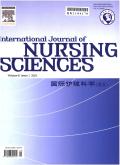A conceptual analysis of facilitation to improve clinical outcomes in critical care units
IF 3.1
3区 医学
Q1 NURSING
引用次数: 0
Abstract
Objectives
Effective facilitation is crucial to improve critical care outcomes in life-threatening conditions through improved teamwork, caring, decision-making, and problem-solving. The meaning of facilitation remains unprecise in a critical care context despite its frequent usage in nursing education and clinical practice. This study aimed to report a thorough concept analysis to clarify the meaning of facilitation in the critical care context by formulating attributes, antecedents, and consequences and providing model cases related to facilitation.
Methods
This analysis was performed by searching online sources published from 1999 to 2023. EBSCOhost, CINAHL, PubMed, and Google Scholar databases were searched using online search engines. The analysis also included the manual search of books, thesaurus and dictionaries that showed relevance to facilitation. Walker and Avant’s eight-step approach was applied to explore and analyze the meaning of facilitation in critical care units.
Results
A total of 68 articles were included in the analysis of this study. Eleven attributes, six antecedents, and seven consequences related to facilitation were formulated. The attributes included dynamic, interactive processes, creating a positive environment, mobilizing resources, assistance, student-centered, shared goals, collaboration, engagement, participation, and feedback. Antecedents were facilitator qualities, motivation, a positive learning environment, student-facilitator relationship, time availability, and specified learning outcomes. The consequences of facilitation were identified as follows: change, professional development, competency, quality development, increased job satisfaction, staff retention, and self-confidence.
Conclusions
The findings from the analysis indicated that effective facilitation results in nurses and critical care staff developing competency, caring, critical thinking, and independence. Therefore, clinical outcomes in critical care environments are improved through teamwork, decision-making, and problem-solving in life-threatening situations.
促进改善重症监护病房临床结果的概念分析
目的通过提高团队合作、关怀、决策和解决问题的能力,有效的促进对改善危及生命的重症监护结果至关重要。尽管在护理教育和临床实践中经常使用促进的含义,但在重症监护环境中仍然不精确。本研究旨在通过阐述促进的属性、前因和后果,并提供与促进相关的典型案例,对促进在重症监护情境中的意义进行全面的概念分析。方法通过检索1999 - 2023年出版的网上资料进行分析。使用在线搜索引擎检索EBSCOhost、CINAHL、PubMed和b谷歌Scholar数据库。分析还包括手工搜索与促进相关的书籍、辞典和字典。Walker和Avant的八步方法被应用于探索和分析促进在重症监护病房的意义。结果本研究共纳入68篇文献。制定了与促进相关的11个属性、6个前因和7个后果。这些属性包括动态、互动的过程、创造积极的环境、调动资源、协助、以学生为中心、共同目标、协作、参与和反馈。前因包括引导者素质、动机、积极的学习环境、学生与引导者的关系、时间可用性和指定的学习成果。促进的结果如下:变化、专业发展、能力、质量发展、工作满意度增加、员工保留和自信。结论有效的疏导有助于护士和重症监护人员培养胜任力、关怀力、批判性思维和独立性。因此,通过团队合作、决策和在危及生命的情况下解决问题,重症监护环境的临床结果得到改善。
本文章由计算机程序翻译,如有差异,请以英文原文为准。
求助全文
约1分钟内获得全文
求助全文
来源期刊

International Journal of Nursing Sciences
Nursing-Nursing (all)
CiteScore
6.10
自引率
2.60%
发文量
408
审稿时长
25 days
期刊介绍:
This journal aims to promote excellence in nursing and health care through the dissemination of the latest, evidence-based, peer-reviewed clinical information and original research, providing an international platform for exchanging knowledge, research findings and nursing practice experience. This journal covers a wide range of nursing topics such as advanced nursing practice, bio-psychosocial issues related to health, cultural perspectives, lifestyle change as a component of health promotion, chronic disease, including end-of-life care, family care giving. IJNSS publishes four issues per year in Jan/Apr/Jul/Oct. IJNSS intended readership includes practicing nurses in all spheres and at all levels who are committed to advancing practice and professional development on the basis of new knowledge and evidence; managers and senior members of the nursing; nurse educators and nursing students etc. IJNSS seeks to enrich insight into clinical need and the implications for nursing intervention and models of service delivery. Contributions are welcomed from other health professions on issues that have a direct impact on nursing practice.
 求助内容:
求助内容: 应助结果提醒方式:
应助结果提醒方式:


